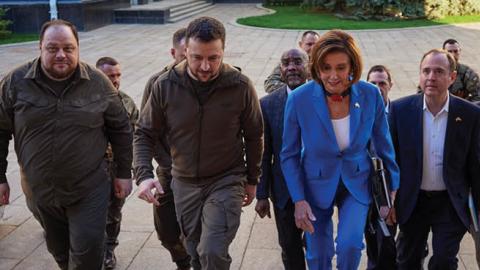The logic of war drove two high-powered visits to Ukraine last week. On a visit to the frontlines from Russia came Gen. Valery Gerasimov, chief of the military staff and the most senior uniformed officer in Vladimir Putin’s army. From the U.S. came Speaker Nancy Pelosi, arguably the wiliest and most accomplished leader of a Democratic Party that, for now, controls both houses of Congress as well as the White House. Gen. Gerasimov’s mission was to understand the forces holding Russia’s latest military offensive in check; Speaker Pelosi was in Ukraine to underline how important the country’s fight has become to the U.S. and to vow that it will stand with Ukraine “until victory is won.”
It isn’t surprising that the U.S. and Russia are sending senior leaders to the war zone. The war in Ukraine is the most serious European military conflict since World War II, and it threatens to produce the greatest nuclear crisis since the height of the Cold War. Both sides have been repeatedly surprised by the intense military conflict, and both sides keep raising the stakes even as the danger of nuclear confrontation grows.
For Mr. Putin the surprises were almost all bad. The initial attack collapsed into a slog through hostile terrain by an army whose leadership, intelligence and logistical failures have exposed the inner weakness of the decadent Russian state. Far from dividing and intimidating Europe, the attacks have energized and united the North Atlantic Treaty Organization, led to a revolution in German strategic thinking, and made it likely that Sweden and Finland will join the alliance even as it moves more forces closer to Russian territory.
Read the full article in the Wall Street Journal


















